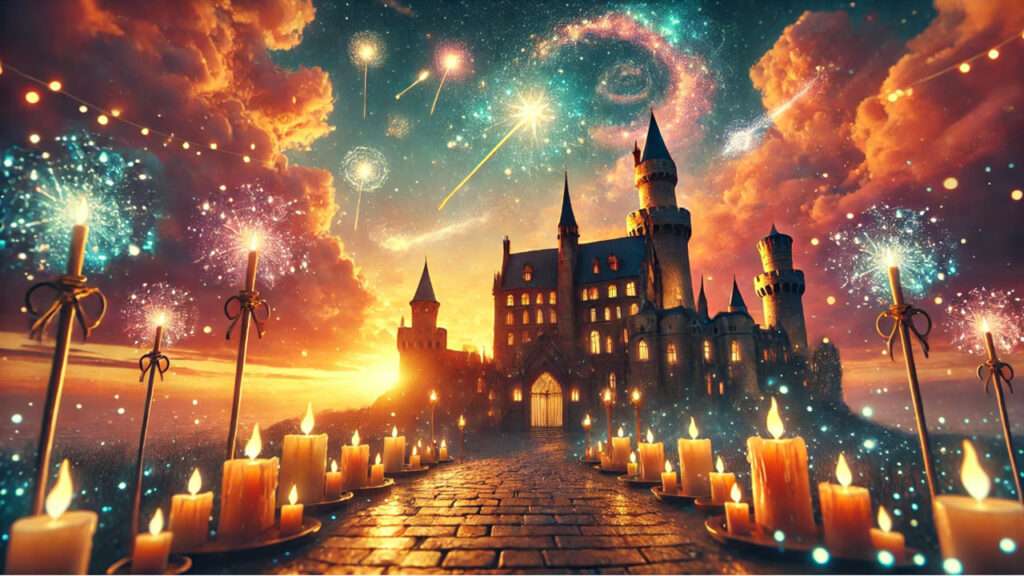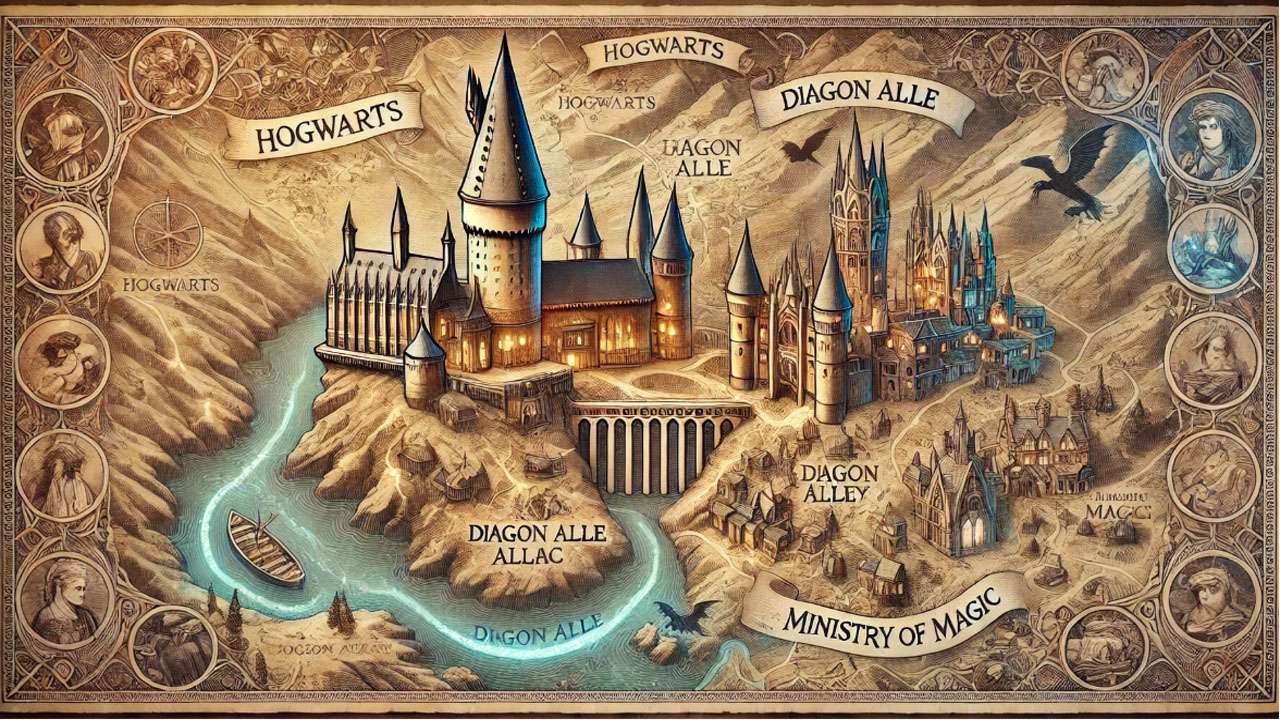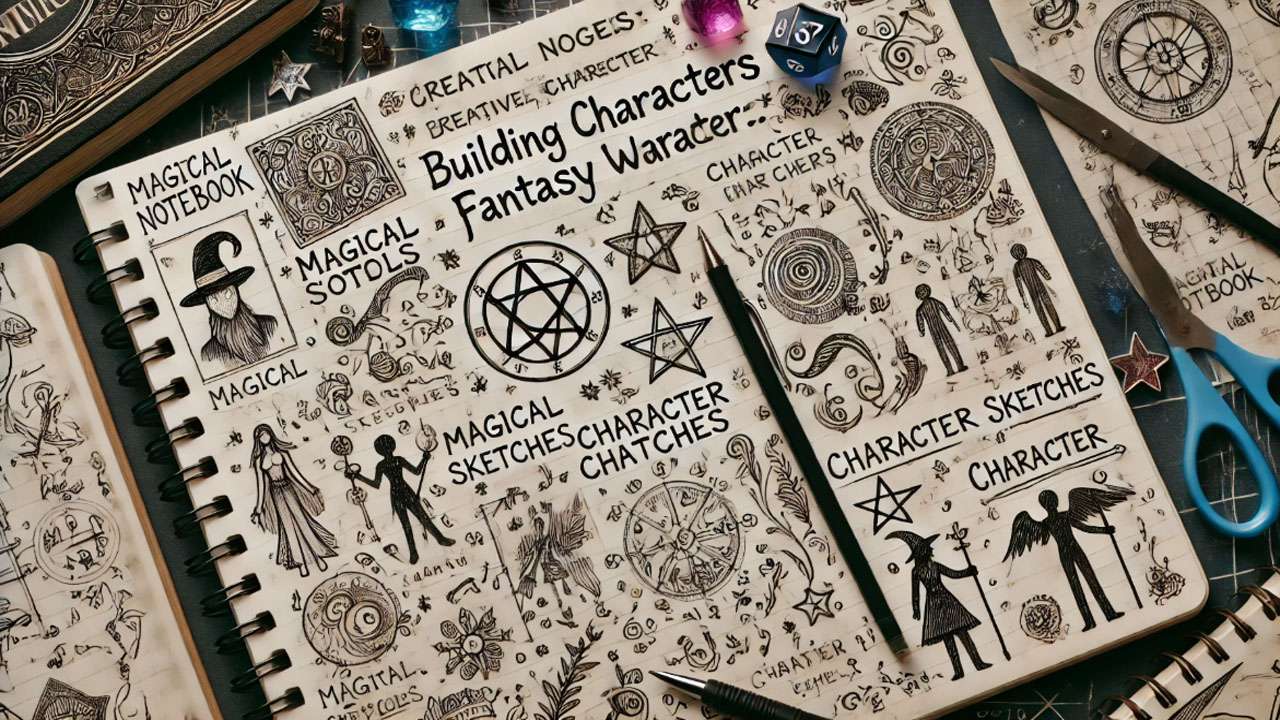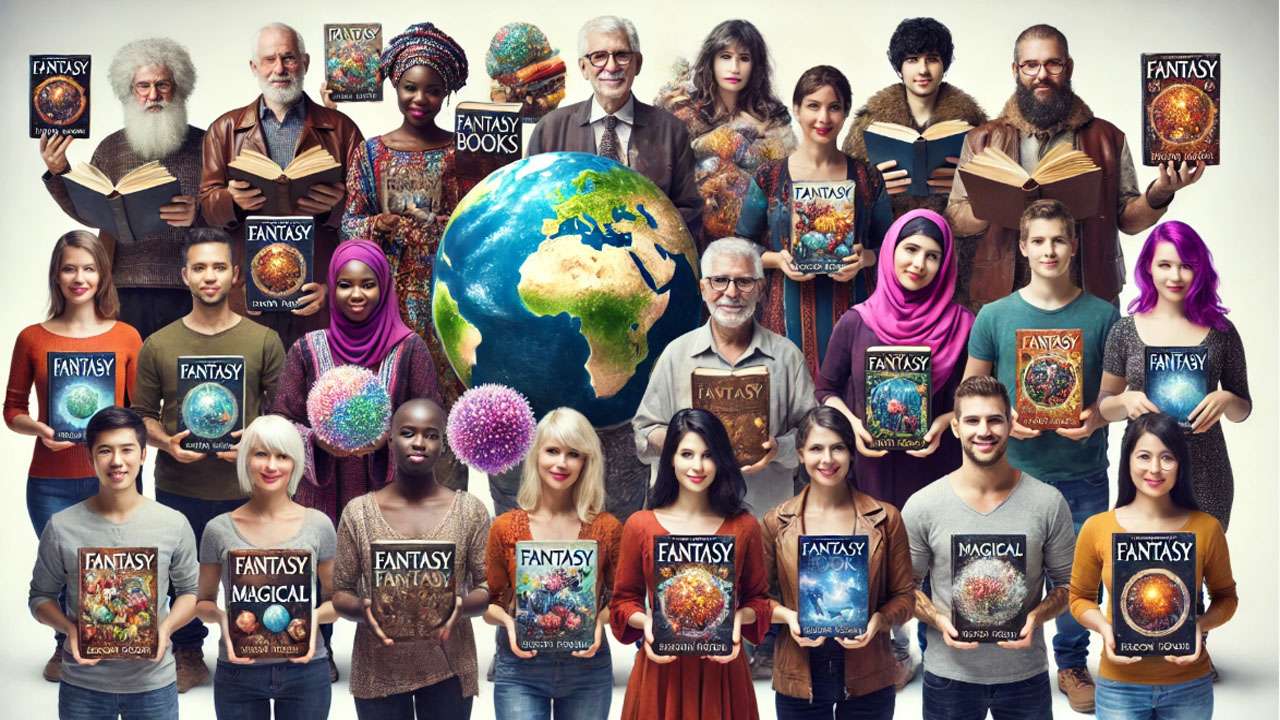
Understanding the Evolution of the Harry Potter Books: How J.K. Rowling Transformed Fantasy Literature
The Harry Potter series is more than just a collection of books – it’s a global phenomenon that redefined fantasy literature. But how did J.K. Rowling’s magical world evolve from a simple story of a young boy discovering his wizarding heritage to a complex, emotionally resonant tale of love, friendship, and sacrifice? 🤔
In this article, we’ll dive deep into the evolution of the Harry Potter books, exploring how each installment grew in both complexity and cultural significance. By the end, you’ll gain a new appreciation for how J.K. Rowling transformed the genre and why her work continues to influence modern literature today. Ready to uncover the magic behind the books? Keep reading!
Table of Contents
Toggle1: The Beginning of an Epic: The Birth of Harry Potter
The Harry Potter series didn’t start as a global sensation. In fact, the first book, Harry Potter and the Philosopher’s Stone (released as Sorcerer’s Stone in the U.S.), faced several rejections before finally being published in 1997. But what made this story of a young boy discovering he was a wizard so unique? 🤔
J.K. Rowling’s Spark of Inspiration 🔥

J.K. Rowling’s journey to creating Harry Potter wasn’t without its challenges. Struggling with personal hardships, including financial difficulties and the loss of her mother, Rowling found solace in writing. During a train journey in 1990, the idea of a young wizard, who would later become Harry Potter, simply appeared to her. It was a moment of serendipity that sparked the idea of an entire magical world.
The key takeaway for aspiring writers? Inspiration often strikes when least expected, and sometimes, it’s personal struggles that fuel the most powerful ideas. 💡 Writers can look at their own experiences to create stories that resonate with others.
The Early Struggles and Slow Start 📉
When Rowling first approached publishers, the manuscript was rejected multiple times. In fact, it was only after the 12th rejection that Harry Potter and the Philosopher’s Stone finally found a home with Bloomsbury Publishing. Even then, the publisher had modest expectations, printing only 1,000 copies.
But what changed? Why did the book eventually become a worldwide hit?
Why Did It Succeed? 🔑
Rowling’s unique mix of relatable characters, a magical world, and universal themes like friendship and bravery helped the book connect with readers. It wasn’t just about the fantasy—Harry Potter felt real, grounded in emotion, and filled with life lessons. Readers could see themselves in Harry, Hermione, and Ron, and that relatability laid the foundation for the book’s success.
2:Expanding the World: How the Series Grew in Complexity
As the Harry Potter series progressed, it evolved from a simple, enchanting story into a deeply layered world filled with complex characters, intricate plots, and rich magical lore. This expansion was one of the key reasons why the books became not just beloved, but iconic. Let’s explore how J.K. Rowling expanded her world and storytelling techniques, taking the series to new heights. 📚✨

1. Growing Characters: From Kids to Heroes 🌱
In the first book, Harry, Hermione, and Ron are introduced as young, somewhat naïve characters. They face challenges that most readers can relate to—school, friendships, and the discovery of their place in the world. But as the series progresses, these characters grow, and so do their challenges.
By the later books, we see the trio dealing with heavier themes, including sacrifice, loss, and identity. This evolution allowed readers to grow with the characters, making them more invested in the story. Writers can learn from this gradual character development: don’t be afraid to let your characters evolve as the plot deepens.
2. Increasing Plot Complexity: Layered Storylines 🔍
What started as a simple quest to defeat Voldemort turned into a multi-layered story full of mysteries, hidden histories, and moral dilemmas. Rowling slowly introduced subplots, like the struggle for power within the wizarding world, the history of the Deathly Hallows, and Harry’s complicated family background.
This added depth gave readers more to think about with each book, keeping them engaged and eager for more. For writers, the lesson is clear: introduce complex, evolving subplots to keep your story dynamic and layered. It’s how you keep readers hooked across multiple installments.
3. The Magic of World-Building 🏰✨
In the early books, readers are introduced to Hogwarts, the magical school, and its magical creatures, spells, and artifacts. But as the series expands, Rowling reveals an entire wizarding world—Diagon Alley, the Ministry of Magic, and even international magical communities.
Each book introduces new locations, deepening the sense of a living, breathing world. For writers, this is a great example of how world-building can make a story feel more immersive. Start small, and gradually expand your world as the plot and character arcs grow. ✨
4. Introducing Moral Complexity ⚖️
One of the biggest shifts in the series was the increasing moral complexity of the characters and plot. The black-and-white world of good versus evil evolves into a more nuanced exploration of loyalty, sacrifice, and the gray areas in between. Characters like Snape and Draco Malfoy, who initially seemed like clear villains, are shown to have deeper motivations.
This shift invites readers to think critically about right and wrong, turning Harry Potter from a simple fantasy into a rich moral discussion. Writers can learn from this by introducing morally complex characters who challenge readers’ assumptions and push them to reflect on their own beliefs.
5. Thematic Growth: From Childhood to Adulthood 🌱➡️🌳
As the series moved into the later books, the themes grew more mature. The first few books focus on friendship, bravery, and overcoming challenges, but by the end of the series, themes like death, sacrifice, and the nature of evil take center stage.
This thematic growth mirrors the characters’ journeys, and it makes the series feel relevant to readers of all ages. For aspiring authors, the takeaway is: don’t be afraid to evolve your themes over time. What you start with doesn’t have to be what you end with.
3: The Cultural Impact: Changing Fantasy Literature Forever
The Harry Potter series didn’t just change the fantasy genre—it revolutionized it. With its blend of relatable characters, intricate plots, and moral depth, it captured the hearts of millions worldwide. But its impact goes far beyond the pages of the books. Let’s dive into how Harry Potter reshaped the world of literature and inspired an entire generation. 🌍✨
1. Making Fantasy Mainstream 📚✨
Before Harry Potter, fantasy literature was often seen as niche, appealing primarily to younger audiences or hardcore fans. However, Rowling’s success brought fantasy into the mainstream, attracting readers from all walks of life. The series broke barriers, proving that fantasy could be both fun and intellectually enriching.
This shift changed how publishers approached fantasy, with many following Rowling’s lead by embracing more complex, mature, and diverse storytelling. Writers today can draw inspiration from this: don’t shy away from making your genre accessible to all ages and backgrounds. Fantasy can transcend age boundaries if it connects on an emotional level.
2. The Rise of the Young Adult (YA) Genre 🚀
Harry Potter also played a crucial role in the rise of the young adult (YA) genre. Before its success, YA fantasy was relatively underdeveloped, often relying on simple plots and characters. But Rowling elevated the genre, adding rich world-building, complex themes, and deep character arcs.
The Harry Potter series demonstrated that YA could tackle big questions—identity, power, sacrifice—while remaining accessible to younger audiences. This helped pave the way for other YA phenomena, like The Hunger Games and Twilight, showing that young readers craved more than just light-hearted stories.
3. Influencing New Generations of Writers ✍️
Rowling’s approach to storytelling influenced a whole generation of writers who grew up reading Harry Potter. Many of today’s top fantasy and YA authors cite her as a major inspiration, from world-building to character development.
For new writers, the takeaway is clear: writing with emotional depth and intricate world-building can elevate any genre. Focus on creating a world and characters that feel real and relatable, even in the context of fantasy.
4. Inspiring Global Fandoms and Communities 🌐❤️

One of the most powerful cultural impacts of Harry Potter is the massive global fandom it inspired. Fans of all ages have come together through fan fiction, fan art, conventions, and online communities. This sense of shared experience has kept the magic of Harry Potter alive, even long after the books have ended.
For authors, this is a reminder that storytelling is not just about the book itself but about creating a community. Engaging with your audience, whether through social media, fan-driven content, or events, can build a lasting connection between your work and your readers.
5. Redefining “Heroism” and “Villainy” 🦸♂️⚔️
Another significant cultural shift brought on by Harry Potter is how the series redefined traditional ideas of heroism and villainy. Characters like Severus Snape and Draco Malfoy, once seen as clear antagonists, are given more depth, and their stories become essential to the overall narrative. This complexity allows readers to question the nature of good and evil, making the series much more than a simple battle between light and dark.
Writers can learn from this by exploring the moral gray areas in their own stories. No character is entirely good or bad—by giving your characters depth and motivations, you create a more compelling, thought-provoking narrative.
6. The Legacy: Impact on Other Media 🎬🎮
The cultural influence of Harry Potter also stretched far beyond books. The film adaptations, theme parks, video games, and even stage productions like Harry Potter and the Cursed Child helped the series maintain its relevance in the 21st century. These adaptations not only broadened the audience but also kept the world of Harry Potter alive for new generations of fans
4: J.K. Rowling’s Writing Style: Key Elements of Her Success
J.K. Rowling’s writing style is one of the main reasons the Harry Potter series captured the imaginations of millions. Her ability to blend detailed world-building, relatable characters, and emotionally powerful themes is what sets her apart from other writers in the fantasy genre. Let’s break down the key elements of her style and explore how they contributed to the success of the series. ✨
1. Masterful World-Building 🌍✨
One of the most remarkable aspects of Rowling’s writing is her world-building. From the magical creatures to the intricate rules of wizardry, she created a fully realized world that felt both fantastical and believable. Readers didn’t just visit Hogwarts—they lived in it.
Rowling’s attention to detail made her world feel lived-in. Think about how she describes everything from the layout of Hogwarts to the intricacies of Quidditch. It’s these little details that make the world feel expansive and immersive.
2. Relatable Characters and Emotional Depth 💖
While Harry Potter is set in a magical world, the characters are deeply relatable. Harry, Hermione, and Ron experience struggles that mirror those many readers face—growing up, finding your place in the world, and dealing with loss. Rowling skillfully creates complex characters with real emotions, allowing readers to form strong connections with them.
Even minor characters like Neville Longbottom and Luna Lovegood receive emotional depth, showing how important each individual is to the story. Rowling doesn’t just focus on good vs. evil; she explores how every character is shaped by their choices and experiences.

3. Balancing Humor and Dark Themes ⚖️
One of the key elements of Rowling’s writing is her ability to balance lighthearted moments with darker, more serious themes. This is especially important in a series like Harry Potter, where readers are taken on an emotional rollercoaster, dealing with loss, betrayal, and war.
Rowling doesn’t shy away from tackling deep topics like death, prejudice, and the abuse of power. Yet, she still manages to infuse humor and levity into the story, often through characters like Fred and George Weasley, or the quirkiness of Professor Dumbledore. This balance makes the darker moments even more impactful.
4. Intricate Plotting and Foreshadowing 🔍
Rowling is a master of intricate plotting. She weaves together multiple storylines and mysteries that unfold over the course of the series. Details from the first book—such as the importance of the Sorcerer’s Stone—are revisited and given new meaning in later books. This careful planning keeps the narrative exciting and fresh, even after seven books.
She also uses foreshadowing to hint at future events, building suspense and anticipation for the reader. Whether it’s a cryptic comment from Professor Trelawney or a seemingly insignificant detail, every piece of the puzzle eventually falls into place.
5. Universal Themes with Timeless Appeal 🌟
Another key aspect of Rowling’s style is her focus on universal themes—friendship, loyalty, bravery, and the fight between good and evil. These themes resonate with readers of all ages, which is why the series appeals to such a broad audience.
Rowling also explores more complex themes, such as the importance of choice, the consequences of prejudice, and the value of self-sacrifice. These themes are woven into the fabric of the story, giving it depth and emotional weight.
5: The Legacy of Harry Potter: Impact on Future Generations
The Harry Potter series didn’t just change fantasy literature—it left a lasting impact that continues to influence authors, readers, and entire generations of fans. But how exactly has Harry Potter shaped the literary world and beyond? Let’s explore the far-reaching legacy of J.K. Rowling’s work and how it continues to inspire new generations. 🌟
1. Shaping the Fantasy Genre Forever 🏰✨

Before Harry Potter, fantasy literature was often seen as niche or limited to a certain audience. Rowling’s series changed that by making fantasy accessible to readers of all ages. With relatable characters, deep themes, and a magical world that felt real, Harry Potter redefined the genre and opened doors for a new wave of fantasy writers.
Today, authors of YA and fantasy books, like The Hunger Games and Percy Jackson, cite Harry Potter as a major influence. The genre has grown exponentially, with fantasy now being one of the most popular genres in both literature and film.
2. Creating a New Era of Young Adult (YA) Fiction 📖💫
The success of Harry Potter helped establish the YA genre as we know it today. It demonstrated that young readers craved complex plots, deep characters, and emotional stakes. This shift paved the way for other successful YA series that mix fantasy with real-world issues, like The Hunger Games, Twilight, and Divergent.
For aspiring writers, this means that YA is no longer just about simple plots or fairy tales—it’s a genre that tackles big issues, from identity and morality to societal pressures and personal growth. Writers can learn from Rowling’s approach by creating YA stories that not only entertain but also challenge young readers.
3. Inspiring Writers of All Ages ✍️💡
J.K. Rowling’s story is an inspiration in itself. She was a single mother living on welfare when she wrote the first Harry Potter book. Her success proves that perseverance and a great story can lead to extraordinary results. Many authors, particularly in the fantasy and YA genres, have cited her as a key inspiration.
If you’re an aspiring writer, Harry Potter teaches us the value of perseverance. Rowling’s journey wasn’t easy, and yet she transformed the literary landscape. Keep pushing forward with your own stories—success might be closer than you think!
4. Fostering a Global Fanbase and Community 🌍🤝
The Harry Potter fandom is unlike any other. It’s a global community of fans who have kept the magic alive for years, even after the last book was published. From fan fiction to conventions and online forums, Harry Potter fans share their love for the series in creative and meaningful ways.
For authors, this shows the power of creating a community around your work. Harry Potter didn’t just inspire people to read—it inspired them to connect, create, and share. Writers should think about how they can cultivate a loyal fanbase and encourage fan-driven content.
5. A Lasting Cultural Phenomenon 🎬🎮
The Harry Potter legacy goes far beyond the books themselves. The film adaptations, theme parks, merchandise, and even video games have turned the series into a multi-billion-dollar cultural phenomenon. This crossover into different media formats has helped keep the magic of Harry Potter alive, reaching new generations of fans.
6: Reflecting on the Legacy of J.K. Rowling’s Work
J.K. Rowling’s Harry Potter series is more than just a collection of books—it’s a cultural milestone that changed the landscape of fantasy literature. But as we look back on the series, it’s clear that its impact goes beyond the pages of the books themselves. In this section, we’ll reflect on the legacy of Rowling’s work and explore the lasting lessons it offers to writers and readers alike. 🌟
1. A New Era for Fantasy Literature 📚✨
When Harry Potter first emerged, fantasy literature was often considered niche, with many books appealing mainly to a small group of readers. Rowling broke this mold by creating a story that was accessible to people of all ages and backgrounds. Her ability to blend magical elements with universal themes like love, friendship, and bravery made the series both relatable and deeply impactful.
2. The Power of Perseverance and Resilience 💪
Rowling’s own journey from struggling single mother to one of the world’s most successful authors is a testament to the power of perseverance. After facing multiple rejections, Harry Potter was finally published—and the rest is history. This story reminds writers everywhere that setbacks are part of the journey and that success often comes after overcoming challenges.
3. Creating Universally Relatable Characters 🧑🤝🧑
One of the most enduring elements of Harry Potter is its characters. Harry, Hermione, and Ron are not just fantasy characters—they are friends, learners, and heroes. They experience personal growth, struggle with moral dilemmas, and deal with emotions that everyone can relate to, whether they’re facing school, friendship challenges, or loss.
For writers, the key takeaway is: Develop characters with depth and authenticity. Readers connect with characters who feel real, who experience both triumphs and failures, and who evolve over time.
4. The Enduring Appeal of Themes of Good vs. Evil ⚖️
At its core, Harry Potter is about the battle between good and evil, but it’s the gray areas in between that give the series its depth. Rowling’s exploration of themes like loyalty, courage, sacrifice, and the complexities of human nature resonates with readers of all ages.
5. A Blueprint for Building a Global Fanbase 🌍❤️
Rowling didn’t just create a book series; she built a global community of fans. The fandom around Harry Potter has transcended books, evolving into movies, merchandise, theme parks, and even fan-created content. This sense of shared experience has kept the magic alive for over two decades.
6. Leaving a Lasting Cultural Legacy 🎬🎮
The Harry Potter series has become a cultural touchstone, influencing films, television, theater, and even video games. Its themes, characters, and world-building have inspired a new generation of storytellers to follow in Rowling’s footsteps, ensuring the series’ influence will be felt for many years to come.
As we’ve explored throughout this article, the Harry Potter series is much more than just a story about a young wizard. It’s a groundbreaking work that transformed fantasy literature, influenced generations of readers and writers, and created a cultural phenomenon that continues to thrive. J.K. Rowling’s ability to craft a rich, immersive world, relatable characters, and universal themes has left a lasting impact on the literary world and beyond. 🌍✨
Whether you’re a fan who grew up with the books or an aspiring writer looking for inspiration, Harry Potter offers valuable lessons: the importance of perseverance, the power of complex characters, and the magic of building worlds that feel real. The legacy of Harry Potter proves that great stories have the ability to transcend generations, inspire creativity, and bring people together.
Frequently Asked Questions (FAQs)
1. How did J.K. Rowling change fantasy literature with the Harry Potter books?
J.K. Rowling revolutionized fantasy literature by making it accessible to readers of all ages. She blended magical worlds with universal themes like friendship, courage, and sacrifice, which resonated with a global audience. This combination of relatable characters, rich world-building, and deep emotional stories brought fantasy into the mainstream. 🌍✨
2. What makes the Harry Potter series different from other fantasy books?
The Harry Potter series stands out because of its detailed world-building, well-rounded characters, and the balance of lighthearted moments with darker, more mature themes. Rowling gradually deepened the complexity of the plot and characters, making the series more than just a children’s book—it became a multi-layered story that appealed to readers of all ages. 📚✨
3. How did the Harry Potter series impact the young adult (YA) genre?
Harry Potter played a major role in popularizing the YA genre. Its complex characters and themes, such as identity and loss, paved the way for other YA fantasy books. Rowling showed that young adult fiction could tackle deeper, more serious subjects while remaining relatable to young readers. 🔮📖
4. Why is Harry Potter still so popular after all these years?
Harry Potter remains popular because it explores universal themes like love, good vs. evil, and personal growth. The characters, world-building, and emotional depth make it a timeless series that resonates with readers even after many years. Plus, the global fandom and the expanded universe (films, theme parks) have kept the magic alive. 🌟❤️
5. What lessons can writers learn from the success of the Harry Potter books?
Writers can learn from J.K. Rowling’s approach to gradual character development, world-building, and tackling complex themes. Harry Potter shows that stories don’t need to be simple to be accessible—depth and detail can create immersive worlds that readers want to return to again and again. ✍️💡
6. How did J.K. Rowling develop the magical world in Harry Potter?
Rowling built the magical world of Harry Potter through a combination of detailed settings, unique magical systems, and complex characters. She introduced new magical elements slowly, allowing the reader to immerse themselves in the world while discovering its rules and history bit by bit, which kept the magic fresh and exciting throughout the series. 🏰✨
7. What role does character growth play in the Harry Potter books?
Character growth is central to the Harry Potter series. Harry, Hermione, and Ron evolve throughout the books, facing personal challenges, growing emotionally, and discovering their own identities. This growth not only keeps the plot engaging but also makes the characters more relatable and impactful to readers. 🌱🧑🤝🧑
8. How did the Harry Potter series influence other media?
The Harry Potter series has influenced movies, TV shows, video games, and even theme parks. Its success led to adaptations and spin-offs, creating an entire multimedia franchise. The series also set a new standard for how to create immersive, expansive fictional worlds that can thrive across multiple platforms. 🎬🎮
